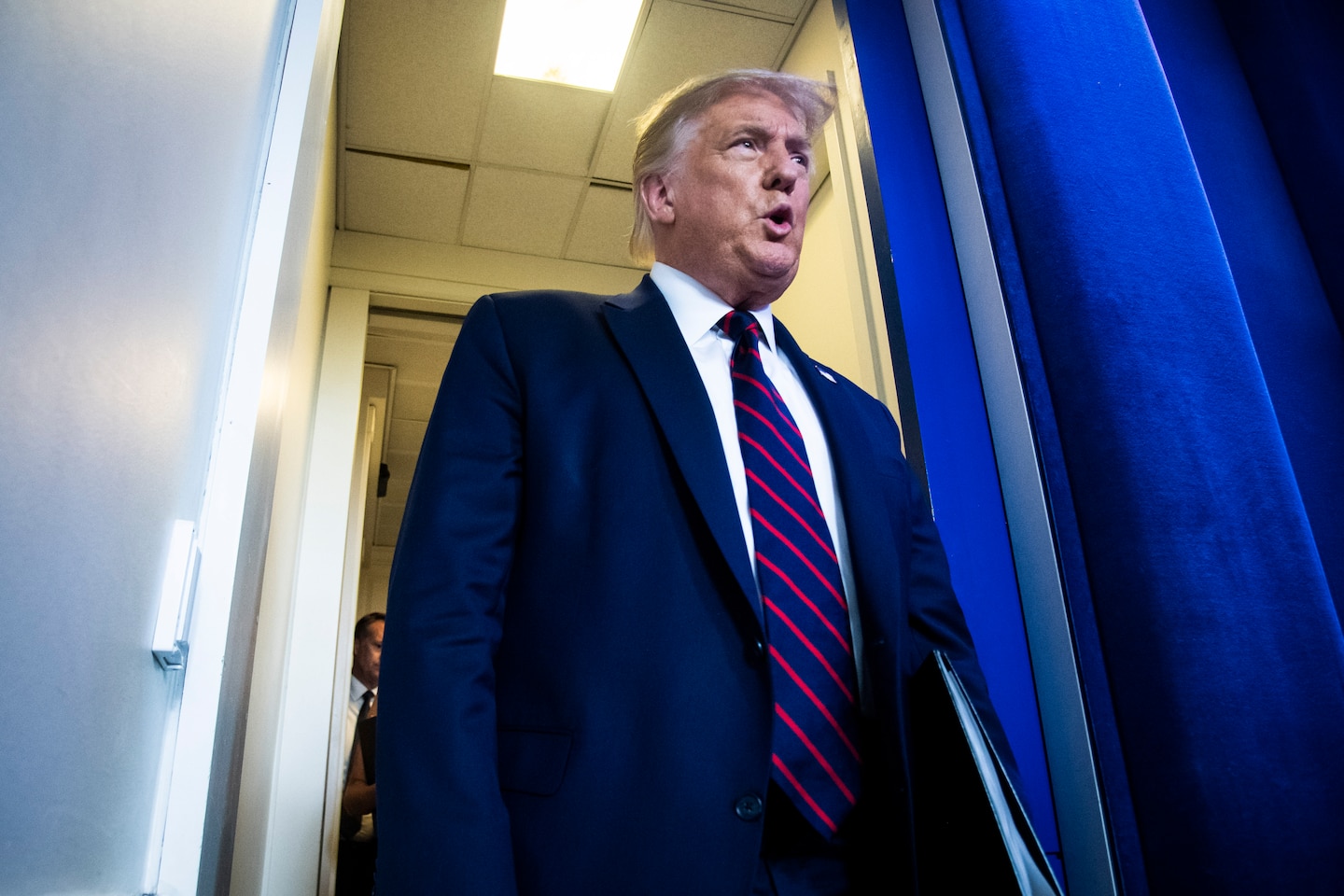The risks of herd immunity to Trump’s corruption

It won’t be easy. Trump has been involved in so many scandals and says so many reprehensible things that our country has developed a kind of herd immunity to the outrage that just one of his actions would have called forth in any previous administration. We have allowed Trump to fend off one scandal with . . . another scandal.
The key is seeing that Trump’s entirely selfish approach to the presidency has a measurable and material impact on the lives of citizens and on the policies he pursues — to the extent that he is interested in policy at all. He cares above all about his own finances, his ego, his ratings and escaping accountability. Everything else falls by the wayside.
Trump’s opponents cannot assume, as they did in 2016, that if they drive home just how awful Trump is personally, voters will recoil in horror. This year, it is essential to make the case that Trump’s corruption means that most of the time he pays no attention to governing. And when he does, he governs in a way that subordinates the public interest to his own interests — and the interests of those who keep him in power.
Consider the past couple of days. The New York Times offered a jaw-dropping article that Trump instructed the U.S. ambassador to Britain, Robert Wood Johnson IV, to ask the British government to “help steer the world-famous and lucrative British Open golf tournament to the Trump Turnberry Resort in Scotland.”
This is the sort of corruption that would have made Boss Tweed proud — using our nation’s diplomats as fixers for Trump’s interest. But it also reflects Trump’s indifference to the idea that the State Department serves the national interest. Turning an ambassador into an errand boy for Trump’s money-losing golf course undercuts our envoys’ ability to carry out the work of the nation.
And there was this startling news on Tuesday at Trump’s first briefing on the pandemic since April: “I just wish her well, frankly,” Trump said when asked about Ghislaine Maxwell, who was arrested this month on charges that she aided convicted sex offender Jeffrey Epstein, her onetime boyfriend, in his sexual exploitation and abuse of underage girls.
This is shocking on its face. But given Trump’s proven willingness to intervene in the criminal justice system and bandy about pardons to protect himself and his friends, it’s possible that Trump was sending a signal. Of course that’s not certain, but do we want a government where such a question naturally arises?
There was also Jane Mayer’s extraordinary reporting in the New Yorker this month about how weak federal regulation through the Occupational Safety and Health Administration during the pandemic has endangered the lives of thousands of poultry processing workers — and how Trump’s campaign has profited from industry contributions.
This is classic influence-peddling under the shroud of an anti-government ideology. But it underscores how Trump’s claim that he would govern on behalf of “the forgotten men and women of our country” was false — unless corporate CEOs were the “forgotten” people he had in mind.
Beyond the direct costs to Trump’s all-about-himself government, the indirect costs are just as large. Trump’s obsession with his interests pushes the consequential things aside.
It was astonishing that Trump thought he was saying a good thing when he declared at Tuesday’s coronavirus briefing that “we are in the process of developing a strategy.”
Really? The president is “in the process” of working on this after five months of catastrophe and more than 140,000 deaths?
And more than two months after Democrats passed an economic recovery bill in the House, Republicans in the Senate were in chaos this week as they tried to formulate an alternative. One reason, The Post reported, was “the White House’s failure to go into the talks with a preset strategy or a list of proposals they knew GOP lawmakers would rally behind.” Trump touts his economic genius but offers no leadership as the economy languishes.
A decade ago, in his powerful dissent in the Citizens United case, Justice John Paul Stevens wrote that “it is fair to say” our country’s Founders “were obsessed with corruption.” They understood that corruption and bad government go hand in hand. It’s a shame our president is so eager to prove them right.
Read more:






